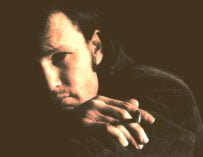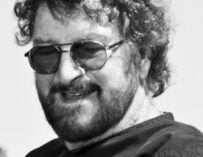
The enduring members of prog-folk band Stackridge, and commercially successful partnership as The Korgis, talk about their eccentric songwriting approach
 tackridge were a British folk, pop and progressive rock group that originated in Bristol during the late 60s and went on to become successful during the early 1970s. Becoming local heroes in the West Country, the band famously opened and closed the first ever Glastonbury Festival in 1970, and became regarded as one of the most entertaining live acts in Britain. At the heart of the various line-ups over the years – and the current members of the reformed Stackridge – are Andy Davis and James Warren, two songwriters who were brought together by a mutual appreciation of quirky English humour, admiration for the Beatles and a desire to write clever, witty, challenging songs.
tackridge were a British folk, pop and progressive rock group that originated in Bristol during the late 60s and went on to become successful during the early 1970s. Becoming local heroes in the West Country, the band famously opened and closed the first ever Glastonbury Festival in 1970, and became regarded as one of the most entertaining live acts in Britain. At the heart of the various line-ups over the years – and the current members of the reformed Stackridge – are Andy Davis and James Warren, two songwriters who were brought together by a mutual appreciation of quirky English humour, admiration for the Beatles and a desire to write clever, witty, challenging songs.
Sadly Stackridge’s relentless touring and appreciative live audience didn’t translate to commercial success on record, and even The Man In The Bowler Hat – an album produced by ‘fifth Beatle’ George Martin – barely left its mark on the charts. The band broke up shortly after, but it wasn’t long before Davis and Warren were drawn back together and went on to form The Korgis. This partnership quickly yielded the chart success that had previously eluded them, with only their second single If I Had You reaching No.13 on the UK chart and their next single, Everybody’s Got To Learn Sometime, becoming a huge global hit just a year later. Charting at No.5 in the UK and No.18 in the US, Everybody’s… went to No.1 in France and Spain, and has continued to hit the charts as a cover version many times in the years since.
Although it was The Korgis that made it commercially, it was Stackridge that reformed in several incarnations during the subsequent decades, and is still an active touring band. Songwriting caught up with the Andy and James for a coffee, in the their hometown of Bath, to discuss their contrasting composition techniques and reflect on their long and winding road through the music world, with a healthy dose of humour and cynicism…
How did you both meet?
Andy Davis: “1968, at the legendary Dug Out Club on Park Row in Bristol. James was in a band called Dawn and I was in a band called Grip Tight Thin and over several months we got to know each other.”
James Warren: “We’d play alternate weeks at the club and even if we weren’t playing we’d go down there and chat at the bar afterwards, so all the local musicians got to know each other.”
AD: “It’s quite difficult to express how random things were in those days. The band [Stackridge] sort of assembled itself really. Obviously at some point we asked people if they wanted to join the band, but I don’t remember turning anybody down! There was no planning behind it at all. In fact, I decided to turn pro and left my job, having never written a single song in my life. Then we met James and he already had a huge catalogue of things he’d written.”

James Warren
So James, you must have been writing prolifically at that time. What was your approach?
JW: “I think I was prolific, yeah…”
AD: “Complexity, that was his approach! Did you have a single song that was in one tempo all the way through? They were all in three or four movements. One of them even made it through on to the first album: The Three Legged Table.”
When did you start writing these epics?
JW: “I was 18 years old and I had all these influences swimming around my head. I loved everything from The Beatles to Frank Zappa, to all the West Coast American psychedelic stuff. And also The Incredible String Band – they were a folk duo from England, but incredibly bizarre. Their music had every influence imaginable from Indian music, Middle Eastern music, to music hall, and I loved all that stuff. I don’t think if I had my own style at all, I was just channelling at all.”
What compelled you to start songwriting?
JW: “I think it was in the air at the time. The Beatles had started this trend of writing your own songs, and everyone who was young at that time thought it was a fantastic idea: ‘we don’t have to keep singing covers, let’s write our own tunes. So I was just like everyone else really.”
Were you writing music thinking you were going to play it on stage, as a band?
JW: “No, I was learning the bass guitar at the time, so I could see myself in a band playing bass, but my songwriting stuff was just me going off on my own little tangent. It was too weird for a band to play it, so I didn’t know where I was going with it.”

Andy Davis
How did you start writing together?
AD: “We invited James into the band because the stuff he played was not the style we wanted to play. But therein lies the essence of Stackridge – all our styles got mashed together, in a sort of collision. I was all Beatles and blues guitar, and James was more harmony based. It was a mash up really.”
So did any of you write songs independently?
AD: “Maybe we did, but there was probably a sort of democratic vision. Although we didn’t talk about it, we did give each other space to do stuff. But the eclectic switching of styles was so much of the band’s character, that all styles could be accepted. There was probably a time in the early days when we were in danger of giving up, because our vision to begin with was that we were a proper rock band, in the Fleetwood Mac sense. Certainly not one that is switching styles every song, but that was the only way the band had any future. In one way we were totally unique, having four songwriters. That was a recipe for disaster!”
What happened when Stackridge finished?
AD: “We all went our separate ways. After The Man In The Bowler Hat came out and went into the charts at 23, we thought maybe this is it, we’re going to have a high-selling album. But we didn’t, so there was a bit of ‘if we can’t do an album with George Martin and sell any, well…’”
[cc_blockquote_right] THE FIRST TRACK WAS CALLED ‘WHATEVER PEOPLE SAY I’M GOING TO EAT MY RHODODENDRONS’ [/cc_blockquote_right]
JW: “Stackridge had been pretty full-on for four or five years, on the road constantly, so we were just biding our time. It shellshocked me that the whole era had come to an end, so I didn’t know what to do really. Gradually I got back into songwriting.”
AD: “Between Stackridge and The Korgis I played mainly with Kim Beacon. Fantastic voice. He’s dead now, but I wrote a lot of songs with him. He was managed by the brothers Nick and Tim Heath [son of band leader Ted Heath], who started Rialto Records, and I gave them some demos. They liked them and somehow James got word that I’d met some people who maybe were useful, so he sent them some demos as well. One day I walked in the office, and they said, ‘Your friend James has sent us a demo tape. It’s rather good, but it’s a bit odd.’ The first track was called Whatever People Say I’m Going To Eat My Rhododendrons. They suggested we get together and do something.”
How did you approach writing together then?
AD: “It’s not a case of one person does the music and one writes the lyrics. If only it were that way! We both do both, and both write with a bit too much eccentricity. We had a small backlog of song ideas, so it wasn’t difficult to get up and running. We sat on the grass outside the Royal Crescent in Bath one sunny afternoon and wrote most of the first album. We had a lot of half-finished songs so we swapped chords and threw ideas at each other.”
What do you think was different with that first Korgis album, compared to Stackridge?
AD: “I don’t remember whether we talked about it, but we decided to make it commercial.”
JW: “I think it was a conscious decision. The idea was to do the opposite of what we did with Stackridge. Not go on the road, not have a big band, just be a mysterious studio project. I think we condensed it, musically, as well. We managed to make three-and-a-half minute pop songs, rather than seven-minute songs.”
If I Had You was your first hit single. How did that song come about?
AD: “It’s no secret that If I Had You is credited to Davies/Rachmaninov because I borrowed the melody from Rachmaninov’s Rhapsody On A Theme of Paganini. But he borrowed it from Paganini! I thought, ‘If he can do it then why can’t I’. The odd thing is, because Paganini was out of copyright then Rachmaninov has the rights, and I couldn’t do that. Borrowing stuff like that can be a very good songwriting aid. The more you get into listening to other people’s work, the more you see the little tricks they use.”
[cc_blockquote_right] WE’RE STILL WRITING AND GETTING BETTER [/cc_blockquote_right]
Where did the name The Korgis come from?
AD: “I had two names for bands: that and The Venkas. It was because a girlfriend of mine worked in a Russian restaurant in London and when the waiter called you a wanker, he said ‘Venkas!’ But The Korgis was just named after the Queen’s dogs, with a ‘K’ just to make it different. Also I love communist revolutionary graphic artwork and a K looks great… a C is useless.”
Fast-forward a few decades… you wound up The Korgis and reformed Stackridge. Are you still writing new material?
AD: “Yes, more than ever. One gets frustrated not having immediate access to recording and releasing stuff, but we’re still writing and getting better. I think I find it easier because I came to a point where I’ll please myself and sing my songs myself. I’m more content… Content, but broke!”
JW: “These days Stackridge is like a ‘hat’ I put on at a certain time. If it’s time to do a new Stackridge album, I’ll start to think in that way musically. When we did A Victory For Common Sense, that was a particular project so we were working on songs together and ideas separately, but it was all very much about writing in that kind of idiom. The rest of the time, I try and write different stuff altogether. At the moment I’ve been trying to come up with more commercial ideas – contemporary pop stuff.”
Would you do another Korgis album now?
AD: “Yes, we’ve talked about it.”
JW: “I’d love to. But these days you’ve got to be very pragmatic about it – who’s going to pay for the studio time? Who’s going to release it? Who’s going to promote it?”
Interview: Aaron Slater
Hopefully an astute record label helps answers those questions and we see a Korgis album soon, but in the meantime Andy Davis and James Warren are both performing individually, and touring as Stackridge. To keep up to date with their live shows near you, visit www.stackridge.net

































Related Articles